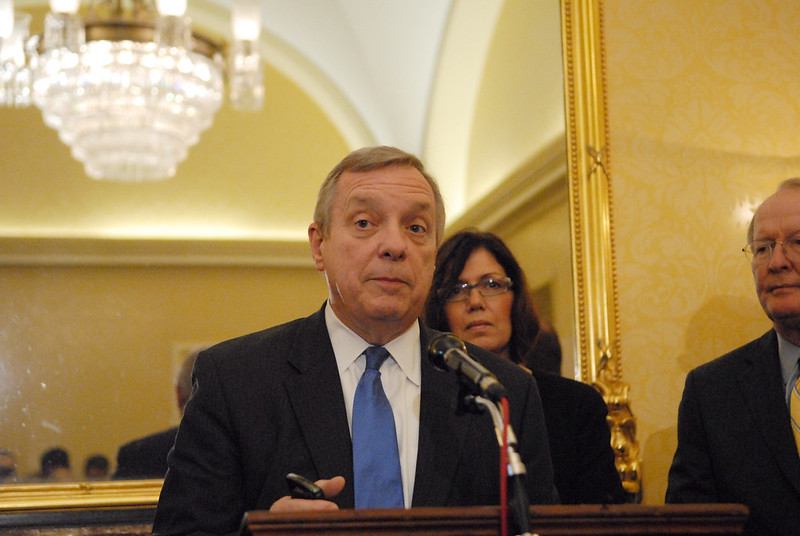
Americans for Tax Reform joined a broad coalition of free market organizations to oppose any effort by Congress to exploit the Covid-19 healthcare emergency to further expand Dodd-Frank-era price controls. The coalition letter led by Competitive Enterprise Institute implores Congress to refrain from using the emergency as an excuse to expand Dodd-Frank’s Durbin Amendment to cap interchange fees on credit cards, as the Amendment has already done so for debit cards.
The Durbin Amendment was a last-minute addition on the Dodd-Frank Wallstreet Reform and Consumer Protection Act, and installed routing mandates and a cap on debit card interchange fees. Interchange fees are charged at the point of sale by banks and credit unions on debit and credit cards transactions. These fees help fund software and hardware systems that ensure secure transactions and help protect customers from card fraud.
Named after Illinois Senator Dick Durbin, the Amendment instructed the Federal Reserve to cap the amount which payment companies and banks with over $10 billion in assets can charge merchants and retailers for debit card purchases. These fees are currently capped at roughly 21 – 23 cents per-charge.
Prior to the Durbin Amendment, merchants would be charged around 1 percent per-transaction. For example, a retailer selling a smartphone for $300 would pay a $3 fee to the bank as a small insurance policy to counteract the risk of fraud or overdrafts from the consumer. As noted by the Competitive Enterprise Institute, the average swipe fee was 44 cents per transaction.
Merchants and retailers that supported the Amendment promised savings would be passed onto consumers in the form of reduced prices in stores. A May 2017, the Congressional Research Service report stated, “Merchants that were paying fees above the regulated interchange fee had expected to benefit from the rule. Evidence from a 2015 study, however, suggests that the regulation has had a limited and unequal impact in terms of reducing merchants’ costs.”
A 2015 study by the Richmond Federal Reserve has shown that most big-box retailers like Target and Walgreens have failed to pass these savings on to the consumer by lowering the cost of items. A 2017 International Center for Law and Economics report found that large retailers saved an estimated $40 billion for their bottom line, while customers did not see a reduction in price of goods.
Consumers are paying more at the bank counter as well through increased banking fees. According the Boston Federal Reserve, the Durbin Amendment has cost large banks nearly “$14 billion a year or more than 5 percent of core total noninterest income.” To recover their annual revenue losses, banks eliminated debit card reward programs, installed high fees on minimum deposit accounts that grew from $109.28 in 2008 to $670.74 in 2016, and charged high monthly maintenance charges on accounts which climbed from $5.90 in 2009 to $13.25 in 2017. Additionally, the number of free checking accounts fell from 60 percent in 2009 to 20 percent as of January 2019. Finally, according to Federal Reserve research, 1-in-4 small banks currently lose money on each debit transaction, explaining many of these consequences.
The decreased availability of free checking accounts and accounts with no minimum balance have hurt America’s most vulnerable consumers. Since the enactment of the Amendment, debit card adoption from lower-income households (less than $25,000 per year) dropped by roughly 10 percentage points relative to households earning between $50,000 and $75,000 annually. Instead of helping America’s consumers, the Durbin Amendment has increased the number of unbanked Americans.
In the most recent relief legislation, House Democrats delayed the legislation from moving forward by insisting many of their green energy provisions and increased funding for performance arts were included in the bill before the House would vote on the legislation. Congress should not use any relief legislation as opportunity to advance pet priorities that have nothing to do with directly benefiting Americans.
Click here to review the letter.

